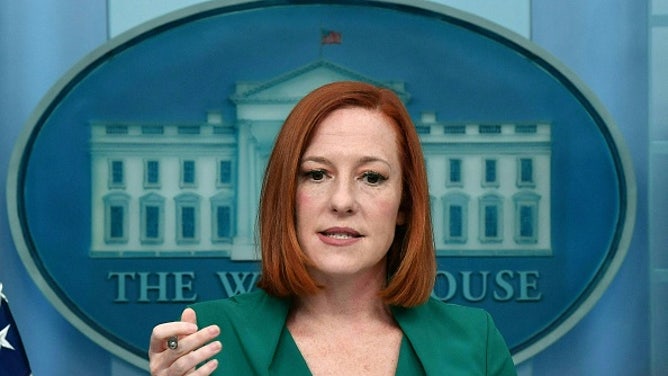Former White House Press Secretary Jen Psaki, now a political commentator at MSNBC, recently attributed the Democrats’ losses in the 2024 election to “misinformation and disinformation.” Her remarks came during an interview on “The Weekly Show With Jon Stewart,” where she reflected on the reasons behind the election outcome.
Psaki stated, “In the weeks after the election, it wasn’t that I was shocked out of my mind that Trump won, but how did this happen and why did this happen and what can be learned from it… To me, it is a multitude of things. It is how the Democrats are communicating about issues, but it’s also a policy question too…it’s misinformation and disinformation.”
Her comments sparked controversy, as critics were quick to recall her past involvement in sharing a now-debunked Politico story about Hunter Biden’s laptop in 2020. At the time, Psaki tweeted, “Hunter Biden story is Russian disinfo, dozens of former intel officials say.” The story, based on a letter signed by 51 former intelligence officials, claimed the laptop was part of a Russian disinformation campaign—a claim that was later discredited.

Despite the inaccuracies of the story, Psaki’s tweet remains online, leading critics to accuse her of contributing to the very “disinformation” she now blames for her party’s losses. They argue that Democrats’ narrative around the Hunter Biden laptop controversy played a role in shaping public perception during the 2020 election cycle.
During the interview, Psaki also suggested that Democrats need to engage more actively on platforms like Joe Rogan’s podcast to counter narratives she considers misleading. This recommendation surprised some observers, as Rogan is known for his outspoken and often controversial views.
Jen Psaki Says Democrats Are Still Trying to Figure Out Why They Lost to Trump
— Chief Nerd (@TheChiefNerd) February 13, 2025
"There are efforts in different places to explore that question … It is a multitude of things. It is how the Democrats are communicating about issues, … it's misinformation and disinformation." pic.twitter.com/ioB8OU5VCf
Psaki also described the Democratic Party as “principled” and defenders of institutions like the rule of law and the separation of powers. This statement drew criticism from those who pointed to events such as the 2020 protests, COVID-19 mandates, and the Biden administration’s legal battles over student loan forgiveness as examples of Democratic policies they view as inconsistent with these principles.
Her remarks have ignited debate about the role of media narratives in political outcomes and the ongoing challenge of addressing misinformation in an increasingly polarized media landscape. Critics argue that Psaki’s comments reflect a broader issue within the Democratic Party of failing to acknowledge the impact of their messaging strategies.
Psaki’s perspective highlights the complexity of navigating political communication in the digital age, where narratives can rapidly influence public opinion. As she continues her role at MSNBC, her insights and commentary will likely remain a focal point in the ongoing discourse surrounding media influence and political accountability.
